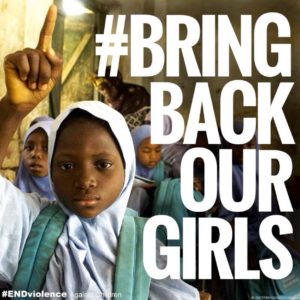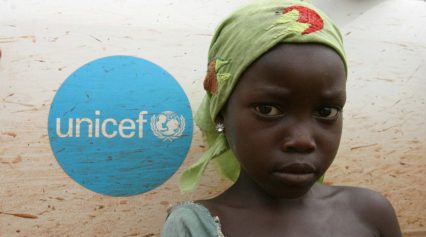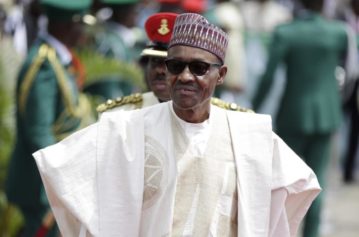
Former Secretary of State Hillary Clinton and first lady Michelle Obama have called on the Nigerian government to bring the girls home. A few U.S. senators have, again, urged the U.S. government to pass the International Violence Against Women Act, and Nigerian activists decried the failure of their nation-state.
At best, these individuals and groups are taking ownership of the well-being of the missing girls, whose fates now lie in the hands of the violent rebel group Boko Haram. At worst, experts say, they may be bolstering political motives — and advocating for a military intervention — that would exacerbate the situation that led to the crisis in the first place.
Zeynep Tufekci, a social technology expert and fellow at the Center for Information Technology at Princeton University, wrote last week that “attention has complex, sometimes destructive consequences.” Hashtags, she writes, can generate action, and so using them are acts of power, for good or bad.
“Arguing whether ‘hashtag activism’ works, misses the point,” she tweeted. “It works to generate attention,” but the “question is: how, and what does attention do?”
Dyan Mazurana, assistant professor of gender studies at The Fletcher School at Tufts University, told Al Jazeera that international attention is crucial to keeping the girls alive. Mazurana has worked in Uganda with a group of Aboke girls whose abduction by Joseph Kony’s Lord’s Resistance Army has parallels to the Nigerian case.
“All of this is tied up in broader politics, but that doesn’t mean that we don’t mean to pressure for their release and education,” she said.
“To the extent that these girls are recognizable and the international outcry continues, [it] might make them less likely to be sold on human trafficking markets.”
But photographer Ami Vitale, whose pictures — of girls in Guinea-Bissau, not Nigeria — were used in the #BringBackOurGirls campaign, said the “misrepresentation” cast an unwanted spotlight on the girls she photographed in Guinea-Bissau. The deceptive use of those photos will make it more unlikely that the Nigerian girls would be recognized.
“If it were white people from another country in the photos, this wouldn’t be considered acceptable,” she told The New York Times Lens Blog.
The issue of the misleading photos aside, EJ Hogendoorn, the Africa deputy program director for International Crisis Group (ICG), also said that the international attention has been effective, even making some Nigerians aware of an issue that they had once considered irrelevant. Nigeria-based blogger Blossom Nnodim said that the campaign had inspired her community to take offline actions, including marches or sit-ins to support their online activism.
“If you’re in Lagos, Boko Haram is a faraway problem,” Hogendoorn said. “Until this issue of the girls came up, very few Nigerians in the south considered this an issue.”
But intervening militarily, he added, would adversely affect the situation. A 2009 crackdown on Boko Haram, in which the Nigerian military killed the wives and daughters of Boko Haram members, provoked retaliatory behavior of a cruelty unseen before, he said. In this sense, Mazurana added, comparisons of this campaign to the Kony 2012 video — which advocated for the rebel leader’s capture and earned the attention of millions around the world — are less relevant. The latter called for a military intervention while #BringBackOurGirls doesn’t, she said.
The abduction of the estimated 276 schoolgirls, a few dozen of whom the Nigerian government said were able to escape, is not an isolated incident of extreme violence. Since May 2011, the Boko Haram insurgency has cost more than 4,000 people their lives, according to the ICG. But this kidnapping has struck a chord with the international community in a way that previous atrocities have not.
Movements to save or protect women, however, can be manipulated for other political ends. Social anthropologist Saba Mahmood, an associate professor at UC Berkeley, has pointed out that some Western leaders used the Taliban’s policies against women to rally domestic support that prolonged the war in Afghanistan.
Read the full story at america.aljazeera.com


